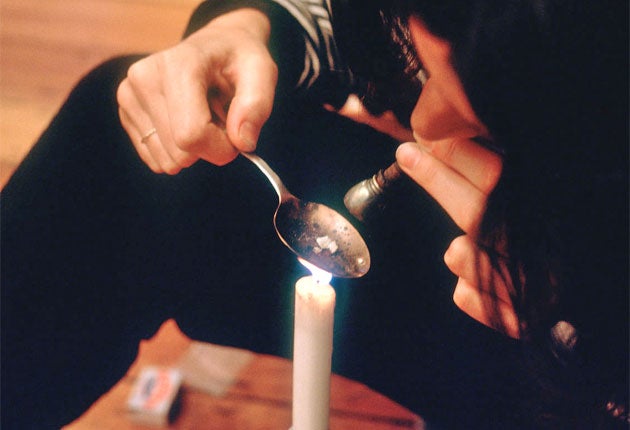Scotland is right – punishing drug users won’t help, they need care as much as cancer patients do
The latest policy initiative in Scotland represents a broader move to pivot problem drug use towards health rather than crime, writes Ian Hamilton


Newly appointed Lord Advocate of Scotland, Dorothy Bain, has told MSPs that anyone caught in possession of a class A drug like heroin or crack-cocaine will be given a warning rather than face prosecution.
Scotland now has the highest rate of drug-related deaths in Europe with 1,339 people dying in 2020. Nicola Sturgeon and the SNP know they have to act and reverse this annual record rise in Scots prematurely losing their lives to drugs. This issue has rocketed up Nicola Sturgeon’s list of priorities and is now a “national mission”.
Predictably, the Scottish Conservatives wasted no time in opposing the move from prosecution to warnings, saying that it was “de facto decriminalisation”. Sadly demonstrating their ignorance as it is not decriminalisation, rather it is depenalisation.
There are some issues that should be above politics, and this is one of them. It is not just the Scottish Conservatives prioritising political strategy over life-saving policy initiatives; their colleagues in Westminster have been doing the same for some time. Campaigners and politicians in Scotland have tried introducing drug consumption facilities only to be told by the Home Office that this would be illegal. That’s despite evidence that such interventions reduce fatal overdoses and are often the first time those with serious drug problems make contact with services. It’s an important step that can lead eventually to recovery.
This latest policy initiative in Scotland represents a broader move to pivot problem drug use towards health rather than crime. Something that has been tried in Portugal for over 20 years and with significant success. Like Scotland, Portugal faced record numbers of drug-related deaths. These plummeted when the government introduced a policy of decriminalisation and, crucially, expanded treatment services. This firmly placed drug policy under the ministry of health rather than justice.
Such a move recognises a fundamental fact, we can’t punish people for drug use, they need care in the same way those with cancer or heart disease do. It is still to be seen whether the Scottish government will provide sufficient resources to deliver the planned diversion from prosecution to treatment. Dropping prosecutions in favour of warnings will prove to be impotent in reducing drug related deaths without meaningful and timely drug treatment options.
As with all changes in policy, the devil is in the detail and the power is in the hands of those implementing it. So, what initially appears to be a radical and welcome move by the Lord Advocate begins to look less so when hearing how the head of drug strategy for policing in Scotland suggests it should be applied. Assistant chief constable Gary Ritchie said “formal warnings would still appear on criminal records and that persistent and serious offenders would still be reported to prosecutors”.
If Ritchie’s interpretation were to be implemented, then all those with prior offences for possession of drugs would be prosecuted rather than just given a warning. Most people caught in possession of class A drugs are not amateur and naïve users; they are physically and psychologically dependent. This involves raising enough money to service their dependency several times a day, obviously increasing the odds of them being caught compared to the occasional weekend user.
Reducing drug-related fatalities is possible not inevitable, what does appear to be predictable is the inability of Westminster politicians to support rather than sabotage the Scottish government’s attempts to reverse these premature deaths.
Ian Hamilton is a senior lecturer in addiction and mental health at the University of York



Join our commenting forum
Join thought-provoking conversations, follow other Independent readers and see their replies
Comments